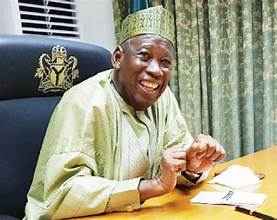Former Kano State Governor, Abdullahi Ganduje, has dismissed assertions made by the Kano Debt Management Office (DMO) regarding the repayment of both foreign and domestic debts. The DMO had previously stated that it had serviced N62 billion in loans accrued under Ganduje’s administration.
In response to these claims, the All Progressives Congress (APC) member emphasized that not all debts cited by the state DMO were the responsibility of the APC government.
A statement from Muhammad Garba, the former Commissioner for Information and Internal Affairs in Kano and now the Chief of Staff to the National Chairman of the APC, described the debt claims as misleading and a deliberate attempt to divert attention from the numerous political and financial controversies surrounding the current administration.
Garba criticized the assertions made by the Director General of the Kano State DMO, Hamisu Sadi Ali, as being not only deceptive but also inappropriate for someone in such a crucial government position.

He acknowledged that, like any government in Nigeria, the Ganduje administration did take out loans, but he reiterated that many of the debts listed by the DMO predate the APC’s tenure.
Garba pointed out that the current debt portfolio of Kano State, as identified by the DMO, includes loans taken out in 1992, 2007, 2008, 2009, 2015, and 2018. He provided specific examples, citing loans such as the Multi-state Road Project from 1992 and the Malaria Control Booster Project from 2007, among others.
He also mentioned additional loans not acquired during Ganduje’s leadership, including the Commercial Agriculture Development Project and the Erosion and Watershed Management Project.
While Garba confirmed that the APC government did secure some loans, he noted that these included the subsidiary loan agreement for the Third National Urban Water Sector Reform Project, amounting to approximately 64 million Euros, which was signed in July 2018. He explained that this project was delayed due to the COVID-19 pandemic and is now slated for implementation by the current state administration.




